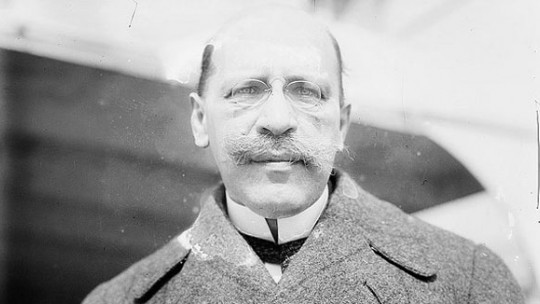Do you know how social situations influence our behavior? Social psychology is one of the branches of psychology that studies our attitude towards others.

Have you ever wondered what shapes our attitude? What makes people great leaders in our society? These questions are resolved by scholars and researchers of social psychology In this way, psychologists end up observing social situations to understand how we behave in front of others and the reason for each of these reactions.
What is social psychology?
Psychologist Gordon Allport addresses social psychology in the following definition: “It is the branch of psychology to understand and explain how the thoughts, feelings and behaviors of individuals are influenced by the real, imagined or implied presence of other human beings” Therefore the meaning of social psychology It is related to understanding how our individual behavior is influenced by the entire social environment.
Through one of these branches of social psychology Researchers try to gather information about how what surrounds us affects us when making certain decisions. In this way, a social psychologist tries to see how people change their behavior when they are alone in a place or when they are in company.
In many cases we do not realize that the social sciences and psychology They are very related. This happens because we are social beings who need to be in contact with others in order to develop in every way. But the point here is that we all behave quite differently when we are in one group or another.
What does social psychology study?
Within psychology as a career, social psychology It has some areas of study that are usually very interesting for most people. Through one of these branches of psychology, its students and those interested in this topic can address the following topics.
-
Group behavior
One of the most fascinating topics of social sciences and psychology It is how our attitude changes within different situations or groups. In this sense, we can verify with some historical examples that there are certain social situations that could only occur due to the influence of groups. One of the most extreme is, for example, the misfortune that happened within the Nazi concentration camps, where social psychology and the influence of the masses played a very determining role.
-
Social perception
When we ask ourselves what we are, we must keep in mind how the perception we have of ourselves in front of others influences our self-definitions. The social perception It is how what others think influences us or how we are suggested through the opinions of others to act in one way or another. In these cases, as an example of this, we have the Halo effect, the Pygmalion effect, among many other influences.
-
Leadership
Leadership is an object of study of social psychology that can integrate us more. Questions such as: What makes a leader considered that way? Or how does someone become the leader of a social group? These are some of the enigmas that a social psychologist and his team try to solve.
-
Non-verbal behavior
Non-verbal language is everything that our mind captures from social situations without us being aware of it. In this way, one of these types of psychology tries to capture how we are influenced by a language that we are not even able to perceive at first glance.
How we can all see in our daily lives the way we see other people and the way we think they see us plays a very important role in a wide variety of actions and decisions. So much so that these types of psychologists Those in charge of examining social situations can affirm that the people around us can shape our thoughts, feelings, attitudes and even our own perceptions.

Key theories of social psychology
These areas of psychology It has in its history great discoveries that were the precursors of social psychology being one of the most interesting branches of psychology for many. Among the most prominent theories, we find some of the principles of social psychology that will surprise you the most.
1. Social facilitation
Psychologist and researcher Allport was the first to discover how the presence of others can serve as a definition of others’ behavior. That is to say, there are different types of social behaviors that are marked by the opinion of the majority. In this way, it was found that the influence of others led to a decrease in the performance of certain difficult tasks.
2. Social learning theory
Bandura was the social psychologist which introduced that different types of social behaviors could be shaped by the social world. In one of their experiments, three groups of children watched a video in which an adult was aggressive towards a doll. In the three groups, different social situations were seen: the adult was rewarded for his behavior or was punished for it. In this way, it was discovered that the group of children who saw how the adult was rewarded were more likely to copy this attitude with the doll.
3. Cognitive dissonance
Another of the principles of social psychology It was introduced by psychologists Festinger, Schater and Black. They discovered that when we have certain beliefs, attitudes or cognitions that are different we experience dissonance, that is, a mental inconsistency that causes us a lot of discomfort. So much so that in our daily lives we are motivated to reduce it either by changing one of our thoughts, beliefs or attitudes by trying to selectively attend to certain information that can support our most intrinsic beliefs. In psychology, the concept of cognitive dissonance explains many of our attitudes towards others.
4. Social identity theory
Tafjel was the researcher who proposed through his theory of social identity how individuals need to keep our personal identity linked to a social group. This is achieved by emphasizing the characteristics that mark a group through our attitudes and focusing on the distinctions between other groups that we consider different from our own. Therefore this same event may be the definition of behavior that we carry before others and in our social events.

5. Attribution theory
Weiner was the social psychologist who was interested in the attributions made to experiences of success and failure. In this way he related this same event of social psychology to the behavior we show in front of others. That is, according to this psychologist we tend to attribute that the behavior of others has been due to two possible causes: an internal cause such as their personality, intelligence or motivation, or an external cause, such as luck, action of third parties, among others.
6. Shock experiment
Milgram made one of the social psychology experiments more revealing. It involved people who acted as teachers in front of others. When a supposed student (who was actually an actor) made a mistake, Milgram ordered the teachers in this experiment to give them an electric shock. In reality this did not happen, but it was the same actor who pretended to receive certain damage (even though the teachers did not know it). Each time the students made more mistakes, he encouraged the participants in this experiment to increasingly increase the voltage of his punishment to the students. Despite the fact that the students showed that they were hurt a lot through electric shocks, there were many teachers who greatly exceeded their punishments just because they had been ordered to do so.
This study of the psychology and its meaning They can explain many events that have occurred in humanity. In this way, we can see that humans are very susceptible to being obedient to an authority figure even if what is ordered to us is not in accordance with our values.
7. Stanford Prison Experiment
In an experiment suggested by psychologists Haney, Banks and Zimbardo, several volunteers were selected to pretend that they were inside a prison. In it, some of those selected were assigned as inmates and others as jailers. During the evolution of this experiment, which had to be ended early, the basic rights of the prisoners ended up being lost since the jailers got so involved in the role that they ended up mistreating them.
Through this study of social psychology It was demonstrated how social roles make us act in one way or another towards others. This is one of the most revealing social psychology experiments about our attitude in a group.
The Social psychology It is one of the most fascinating branches of the study of the human mind. In many cases we do not give importance to how working within ourselves can be the key to being clearer about how the influence of others affects us. This is why it is so important to work within ourselves, whether through our tools or with the help of a professional psychologist.








